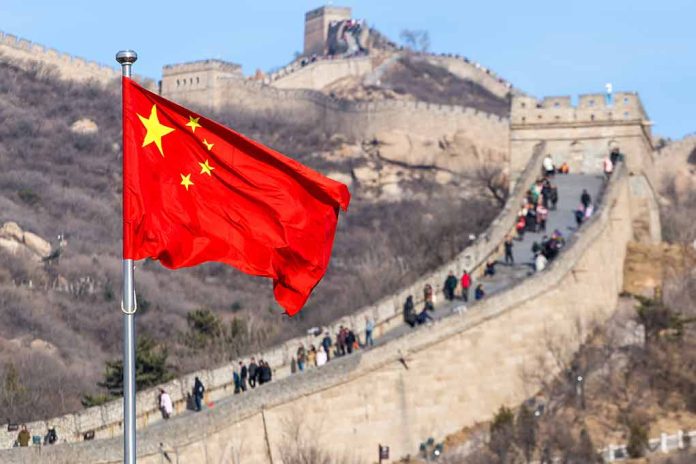
Canada cozies up to Communist China despite a history of election interference, human rights abuses, and fentanyl production that kills thousands of Americans yearly.
Key Takeaways
- Canadian Prime Minister Mark Carney and Chinese Premier Li Qiang have agreed to “regularize channels of communication” after years of diplomatic tension.
- Both nations criticized President Trump’s tariffs while committing to uphold “multilateralism and free trade” against America’s economic interests.
- China and Canada pledged to work together on addressing the fentanyl crisis, despite China being the primary source of precursor chemicals.
- Relations deteriorated after Canada’s 2018 detention of Huawei executive Meng Wanzhou, which led to China’s retaliatory imprisonment of two Canadians.
- Significant concerns remain unaddressed, including Chinese interference in Canadian elections and human rights abuses against Uyghur Muslims and in Hong Kong.
Canada Reopens Dialogue with Communist China
Canada’s Liberal government under Prime Minister Mark Carney has initiated renewed diplomatic engagement with Communist China, disregarding serious concerns about Chinese election interference and human rights violations. The two nations announced plans to “regularize channels of communication” following a phone call between Carney and Chinese Premier Li Qiang. This diplomatic reset comes despite documented evidence of Chinese interference in Canadian elections and ongoing human rights abuses against Uyghur Muslims, which Canada previously criticized before this apparent backtracking by the liberal Carney administration.
“Mark Carney spoke with the Premier of China, Li Qiang. The leaders exchanged views on bilateral relations, including the importance of engagement, and agreed to regularize channels of communication between Canada and China,” Office of Canadian Prime Minister Mark Carney
Diplomatic Relations Marred by Hostage Diplomacy
Relations between Canada and China collapsed in 2018 when Canadian authorities arrested Huawei executive Meng Wanzhou on a U.S. warrant related to sanctions violations. China’s response revealed its true nature as the communist regime immediately detained two Canadian citizens, Michael Kovrig and Michael Spavor, in what was widely recognized as hostage diplomacy. The “two Michaels” were held in harsh conditions for more than 1,000 days while Meng remained under comfortable house arrest in her Vancouver mansion. All three were eventually released in 2021 after the U.S. reached a deferred prosecution agreement with Meng.
“In recent years, China-Canada relations have faced unnecessary disturbances and encountered serious difficulties,” Li
United Against President Trump’s Tariffs
Both Canada and China expressed common concerns about President Trump’s tariff policies during their discussions. The communist regime and Canada’s liberal government have found common ground in opposing America’s efforts to protect its workers and manufacturing base through strategic tariffs. China has repeatedly manipulated its currency, stolen intellectual property, and flooded markets with subsidized goods, yet Canada appears eager to align with Beijing against Washington’s economic interests, demonstrating a troubling priority shift under Carney’s leadership.
Breaking: Trump slaps tariffs on Canada, Mexico, & China to combat Fentanyl crisis! 🇺🇸💊 Will this stop the drugs or spark a trade war? 🌎💥 #FentanylFight #TradeTensions
Trump's Tariff Strategy Targets Fentanyl Trade, Strains International Ties
Summary: President Donald Trump… pic.twitter.com/O2rYA7SzRR
— ILJUR – International League of United Reporters (@YSMILJUR) February 3, 2025
The Fentanyl Crisis Connection
One of the supposed focuses of the renewed dialogue is addressing the fentanyl crisis that has devastated communities across North America. However, this cooperation rings hollow given China’s role as the primary source of fentanyl precursor chemicals that Mexican cartels use to manufacture the deadly drug, killing tens of thousands of Americans annually. While Chinese officials promised to work with Canada on this issue, China has repeatedly failed to meaningfully crack down on chemical manufacturers who knowingly supply drug cartels with the ingredients needed for fentanyl production.
“willing to work with Canada to jointly uphold multilateralism and free trade,” Li
Unaddressed Concerns of Election Interference
Notably absent from the announced dialogue is any meaningful discussion of China’s documented interference in Canadian elections. Canadian intelligence agencies have confirmed multiple instances of Chinese government agents working to influence electoral outcomes in favor of preferred candidates. Despite these serious national security threats, the Carney government appears willing to brush aside these concerns in pursuit of renewed economic ties with Beijing. This disturbing prioritization of trade over sovereignty raises serious questions about Canada’s commitment to protecting its democratic processes.



